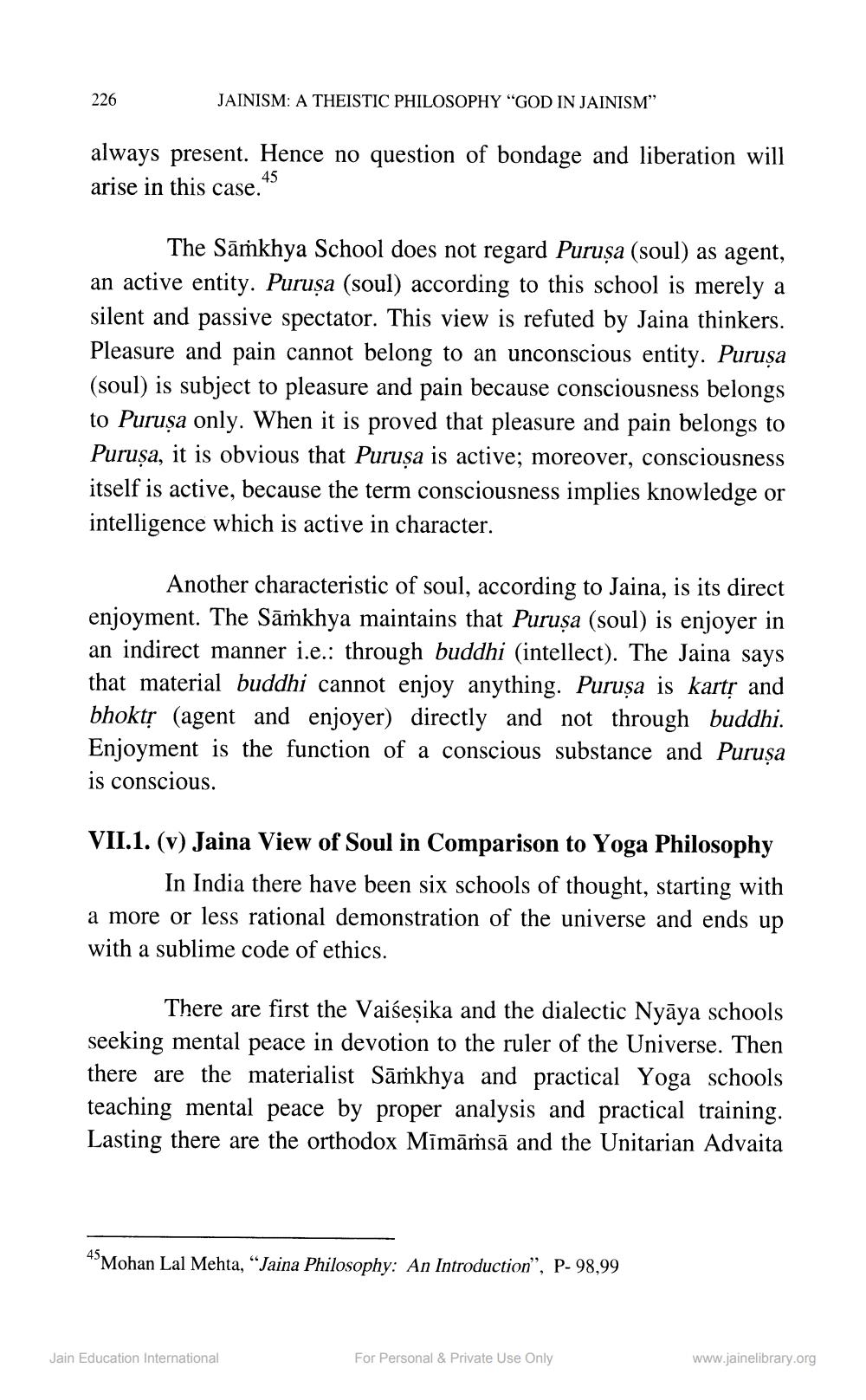________________
226
JAINISM: A THEISTIC PHILOSOPHY "GOD IN JAINISM"
always present. Hence no question of bondage and liberation will arise in this case.
45
The Samkhya School does not regard Purușa (soul) as agent, an active entity. Puruşa (soul) according to this school is merely a silent and passive spectator. This view is refuted by Jaina thinkers. Pleasure and pain cannot belong to an unconscious entity. Puruṣa (soul) is subject to pleasure and pain because consciousness belongs to Purusa only. When it is proved that pleasure and pain belongs to Purușa, it is obvious that Puruşa is active; moreover, consciousness itself is active, because the term consciousness implies knowledge or intelligence which is active in character.
Another characteristic of soul, according to Jaina, is its direct enjoyment. The Samkhya maintains that Puruşa (soul) is enjoyer in an indirect manner i.e.: through buddhi (intellect). The Jaina says that material buddhi cannot enjoy anything. Puruşa is kartṛ and bhoktṛ (agent and enjoyer) directly and not through buddhi. Enjoyment is the function of a conscious substance and Puruşa is conscious.
VII.1. (v) Jaina View of Soul in Comparison to Yoga Philosophy In India there have been six schools of thought, starting with a more or less rational demonstration of the universe and ends up with a sublime code of ethics.
There are first the Vaiseṣika and the dialectic Nyāya schools seeking mental peace in devotion to the ruler of the Universe. Then there are the materialist Samkhya and practical Yoga schools teaching mental peace by proper analysis and practical training. Lasting there are the orthodox Mīmāmsā and the Unitarian Advaita
45 Mohan Lal Mehta, "Jaina Philosophy: An Introduction", P- 98,99
Jain Education International
For Personal & Private Use Only
www.jainelibrary.org




